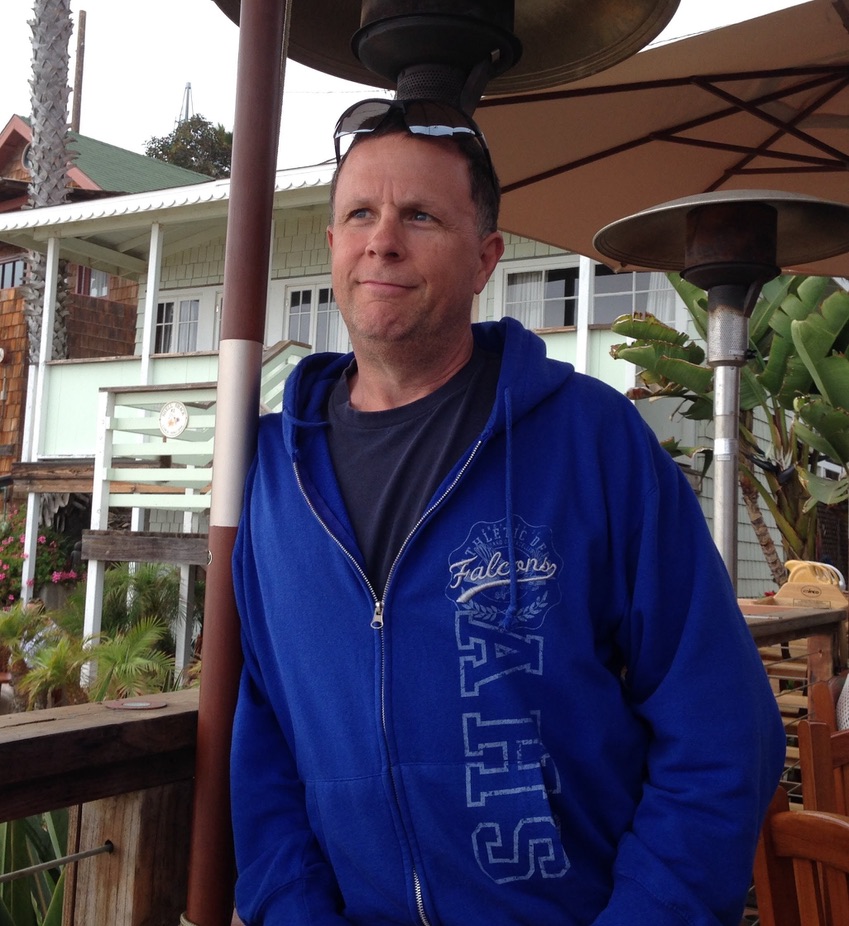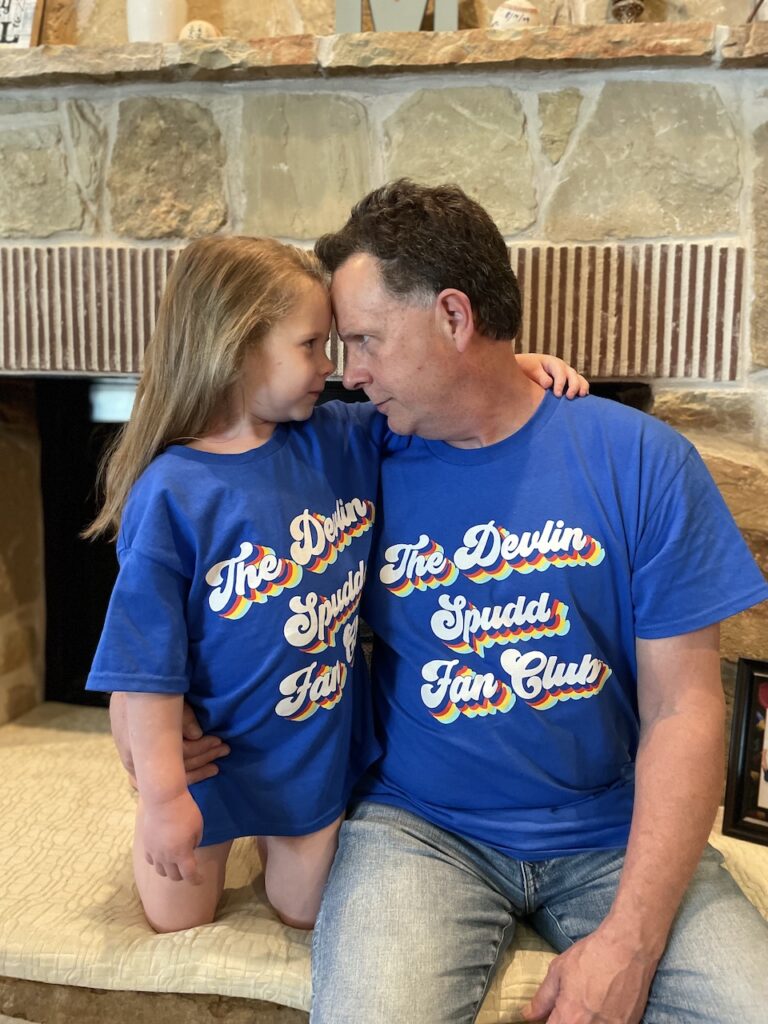One Question
(For my dad and Harold and all the others).
On Veteran’s Day, I remember.

Growing up, and later when I visited home from Chicago, I probed my dad for details about his Air Force experiences. A few times we toured the Castle Air Museum where he’d fill my head with USAF minutiae. Like many veterans, he was chatty about some aspects of his past life. Guys he served with, places he was stationed, those were easy topics. He loved re-telling the easy stories, like the time he and his buddy mooned Eleanor Roosevelt who was traveling on a goodwill tour overseas. Or how he avoided life as a ball-turret gunner. Or how the B-52 was his favorite plane.
But on the difficult subjects, gleaning information about his military service was a delicate dance. Push too hard, and he’d shut down. Wait too long and the thread would be lost.
One night, we were watching baseball, some inconsequential game on TBS, just the two of us in his Atwater house. Resting on well-worn denim pillows, he reclined on the floor next to the brick fireplace while I languished in the green-felt swivel rocker, my feet propped on the ottoman. We both nursed our beverages, Coke for me and a highball for him.

Somehow, the talk turned to his WWII service in the Pacific. He began to describe a typical day. After a short meeting about the mission, his crew would pile into their B-29, The Lemon Drop Kid (a nod to Bob Hope). Other crews did likewise, the squads all taking off to fulfill their task. He alluded to the uncertainty and anxiety before and during the flight. “Everyone felt it. You just never knew,” he said.
“So, I’m guessing there were times some of those crews wouldn’t return?” I asked.
His focus remained forward on the baseball game, the quintessential American sport. The reply was somber, reverential. “Sure,” he nodded at the screen. “We lost a lot of good men, friends of mine.”
I paused, digesting his words. What a stark difference in careers we had. Me in the relative safety of a high school classroom, complaining about fatigue and homework not turned in. He, freezing at 30,000 feet in the belly of a bomber, flying into hostile territory, dodging fighters and anti-aircraft fire. The whole objective of the enemy was to kill the intruders in the sky. The intruders, of course, being my dad and other servicemen.
“And you all knew that,” I said, “I mean, before your crew took off, you knew that you might not…” I wasn’t sure how to finish the idea.
He turned briefly and finished the sentence for me. “Hell yes we knew it. We had a job to do. Orders. But yeah, we were sitting ducks up there.”
The TV droned on, but I wanted more. I spoke slowly, trying to match his tone. “So, you’re the bombardier in the back while the pilot is flying this giant plane.”
He corrected me. “A B-29 Superfortress.”
“Right. The B-29 is not very fast, doesn’t maneuver very well. What’s the pilot’s strategy? Or does it depend where you are in the formation? Or maybe something else?”
With sad blue eyes, he turned back to me. I think he was trying to measure what to say to an outsider, one who just can’t comprehend, one who wasn’t there. How do you explain a memory? “There’s no strategy,” he said simply.
He returned his eyes to the game, but I couldn’t let go. There had to be more to it. I finally spoke. “You return to the base after dropping your bombs, and the plane next to you doesn’t come back.”
I was leading to my ultimate question, trying to unravel events that pre-dated my birth by over two decades, events that allowed me to exist. “What’s the difference between your crew and the others?”
Staring down at a half-finished crossword puzzle, he cleared his throat. “Luck,” he finally said quietly. “It’s just luck. You fly to the target and drop your bombs. And you hope to hell you don’t get hit. Then you fly home to see who made it.”
There was a finality to the last statement. He shifted his weight on the pillows and took a sip of his highball. Except for the announcers, there was silence.
No need to push, I thought. “Braves have the bases loaded,” I finally said.
“They won’t score,” he replied. “This bum couldn’t hit a curveball with a tennis racket,” he added, rubbing his eyes with both hands.
On Veteran’s Day, I remember. I hope you do too.










Could never get my ddd as d yo talk about WW2 in the Pacific. He was in the Navy. Enlisted when a source told him his draft number was coming up. No way did he want to serve in the Army, he always said. He served as a First Class Pharmacist’s Mate. He did say a water tanker was the safest place he thought he could be.
I think that reticence is common. I didn’t know your dad was in the Navy. My dad chose Army Air Corp because he thought it was safer than being on the ground. Not sure about that.
One time he said that there had been six planes shot down which he was in Okinawa and his plane was the seventh. After they safely returned to base, no one was around. Looked deserted until he walked in the mess hall and everyone cheered for him. They said while he was fighting his first daughter was born. Gotta say that was a tough one to fathom when I’d think about ‘what if…’
Wow!
Love this story! And what if…God had his hand on our fam.
Mike I love this. Reality. Made me tear up. Very thankful for my freedom. Thanks Uncle Jerry.
So, so grateful for our freedoms, you’re right. Thanks to my dad and Uncle Bill and so many others.
I too had those conversations with a little bit of pulling teeth with my Dad in his later years.. my father dropped bombs on Vietnam and Laos and I thought he was sunning it up in Guam. Years later when I made my own trips there he pulled out some navigation maps and showed me where he had unloaded the belly of the B52 he flew… but there was not talk of loss or regret.
Brilliant.
You captured our dad and the glory of Veteran’s Day in one effortless swoop.
You took all of us readers into the bomb pit which could have exploded over the Pacific without warning at any moment.
You gave us a personal glimpse into a war hero begrudgingly sharing painful memories with his devoted son.
You shared the intimacy of a soldier fighting back tears as he remembered that war is indeed, hell.
And it was sobering and poignant and humbling and wonderful to read.
Thank you, my beloved brother.
Thank you.
Thanks for the great comment, Pat. He was free with many words but not so much the war stories. He saved those for his buddies at reunions.
I INADVERTENTLY commented twice. I didn’t realize my first comment was recorded. Sorry, Mike.
No prob! Always good to get comments, even repeats.
Facebook is EXPLODING !
They love your article.
I shared it.
Michael,
Maybe the best best thing I ever read? I’m not talking your stuff, I’m talking all stuff.
Better than my days of reading the Argus Leader, The Sporting News. Bettter than Tim Keown’s column after a Giants win. Ya, the best.
You shared a great memory, and turned it into more than just a story. I don’t know I feel right now because I felt like his answers were directed at me.
Literary Award worthy.
Those are really kind words. The best part is that you mean it. Once in a while I get an idea, and the writing is as good as the idea. Then there are other times… Anyway, our dads put it all on the line. Call it luck or fate or God, they survived, came home, and had kids. For that, we’re grateful.
Such a wonderful read Mike. Golden moments with dad. You captured something special and intimate. Thks for sharing it with us.
As always, thanks for taking time to read, JP!
Your writing was stupendous. Made me well up. Uncle Jerry was the best and I am thankful for him, Uncle Pat and my dad serving. No PTSD when they came home. They survived because of the grace of God. Thank you for sharing this story.
Thanks, Barb. We had some fantastic parents to model for us. Those Hurleys–quite a family.